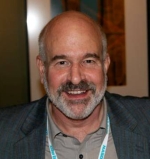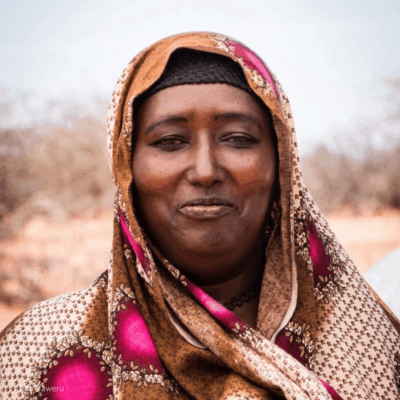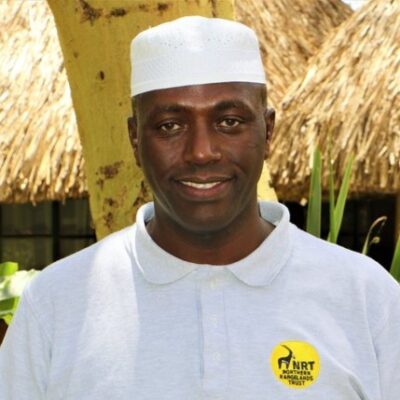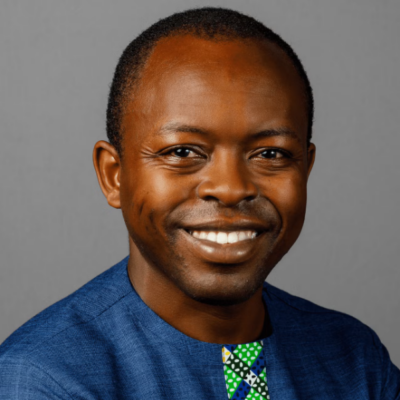Listeners:
Top listeners:
-
 play_arrow
play_arrow
118 | Kenyan Herders Say Judgement Against Them Based on Forged Signatures / Continuation of Episode 117
-
 play_arrow
play_arrow
117 | Surviving Survival Internatinal, Part 1: Kenyan Elders Call Foul on International Media, NGOs
-
 play_arrow
play_arrow
116 | From Ticking Time Bomb to Demographic Dividend: James Mwangi and Kenya's Great Carbon Valley
-
 play_arrow
play_arrow
115 | Unpacking Donald Trump's Very Weird Environmental Orders
-
 play_arrow
play_arrow
114 | Michael Greene: Carbon Cowboy or Lone Ranger? Part 1
-
 play_arrow
play_arrow
113 | The Future of Environmental Finance: Strategies for Biodiversity and Climate Solutions, with David Hill and George Kelly
-
 play_arrow
play_arrow
112 | Fantasy Football and Dynamic Baselines: New Tools for Impact Assessment
-
 play_arrow
play_arrow
111 | The False Dichotomy Between Reductions and Removals (Rerun)
-
 play_arrow
play_arrow
110| Ecological Economics, Systems Thinking, and the Limits to Growth
-
 play_arrow
play_arrow
109 | How Brazil's Quilombola Communities are Planting the Seeds of Sustainability for Small Farms Around the World, with Vasco van Roosmalen of ReSeed
Transcript
This episoed of Bionic Planet is technically an episode of Andrew Greely’s podcast, Smarter Markets, where I appeared as a guest to discuss my new vertical “The Tribes of the Climate Realm.”
It’s not a series but a vertical, where episodes will drop intermittently over the remainder of the year and probably for years to come.
If you’re sharing or referencing the show, please reference the original at https://www.smartermarketspod.com/carbon-frontiers-2024-episode-10-steve-zwick/
The discussion revolves around the historical context of the first generation of REDD projects and the media criticism they have encountered. Steve Zwick emphasizes the importance of understanding the different ideological factions within the climate community and the need to communicate the history and tribes within this realm to combat misinformation and cherry-picking.
Throughout the episode, Steve Zwick provides insights into the development of methodologies, the role of verification and validation bodies (VVBs), and the criticisms faced by projects like Cordillera Azul. He highlights the need for balanced evaluations and constructive critiques to drive progress in the voluntary carbon markets.
The conversation also touches on the challenges faced by journalists and market participants in accurately covering and communicating the complexities of carbon markets. Steve Zwick emphasizes the importance of thorough research, understanding uncertainty, and questioning preconceptions to provide accurate and insightful coverage of projects and methodologies.
Overall, the episode serves as a deep dive into the intricacies of voluntary carbon markets, shedding light on the evolution of methodologies, the role of VVBs, and the need for balanced and informed reporting in this complex and evolving landscape.
Timestamps
-
Introduction to the Podcast Episode: 00:00:00-00:00:10
-
Discussion on the New Vertical “The Tribes of the Climate Realm”: 00:00:10-00:00:31
-
Introduction to Smarter Markets Podcast: 00:00:42-00:00:52
-
Exploring the Crisis of Information or Trust: 00:00:52-00:01:03
-
Sponsorship Message by Base Carbon: 00:01:03-00:01:14
-
Introduction to Carbon Frontiers 2024: 00:01:22-00:01:33
-
Guest Introduction – Steve Zwick: 00:01:34-00:01:44
-
Discussion on REDD Projects and Media Criticism: 00:01:44-00:01:55
-
Questioning the Focus on First Generation REDD+ Projects: 00:01:55-00:02:05
-
Exploring the Ideological Factions in the Climate Realm: 00:02:05-00:02:16
-
Importance of Understanding the History of Markets: 00:02:16-00:02:26
-
Benefits and Critiques of First Generation REDD+ Projects: 00:02:26-00:02:37
-
Discussion on Baselines in REDD+ Projects: 00:02:37-00:02:47
-
Criticism of Baselines and Media Misinterpretation: 00:02:47-00:02:57
-
Challenges in Estimating Baselines: 00:02:57-00:03:04
-
Critique of REDD+ Baselines and Media Interpretation: 00:03:04-00:03:14
-
Discussion on Verification and Validation Bodies (VVBs): 00:03:15-00:03:25
-
Role of VVBs in Auditing REDD+ Projects: 00:03:25-00:03:36
-
Addressing Weaknesses in VVBs: 00:03:36-00:03:46
-
Lessons from Credit Rating Agencies: 00:03:46-00:03:56
-
Addressing Issues with VVBs: 00:03:56-00:04:07
-
Evaluation of REDD+ Projects and Baselines: 00:04:07-00:04:18
-
Discussion on Cordillera Azul Project Criticism: 00:04:18-00:04:28
-
Critique of Cordillera Azul Project: 00:04:28-00:04:38
-
Analysis of Media Criticism on Cordillera Azul: 00:04:38-00:04:47
-
Evaluation of Project Achievements: 00:04:47-00:04:57
-
Exploring Misinterpretations in Project Critiques: 00:04:57-00:05:07
-
Discussion on Nikkei Asia’s Critique: 00:05:07-00:05:17
-
Importance of Balanced Reporting: 00:05:17-00:05:27
-
Guidelines for Journalists Covering Climate Markets: 00:05:27-00:05:37
Quotes
-
“We have to keep developing new methodologies, but we can’t assume the old ones are bad… the old methodologies were much better than people give them credit for.” – 00:30:07-00:30:18
-
“The whole point of an evolutionary process is figuring out what works, what doesn’t, and moving forward.” – 00:39:06-00:39:18
-
“It’s not a one and done thing. Don’t think you can drop in, do a piece that’s accurate on this and be finished.” – 00:44:17-00:44:30
-
“Don’t think you can drop in, do a piece that’s accurate on this and be finished.” – 00:44:17-00:44:30
-
“We need to do a much better job of explaining… the history of these markets and the science that underpins them.” – 00:42:54-00:43:04
-
“The old methodologies were much better than people give them credit for.” – 00:30:07-00:30:18
-
“We have to acknowledge that the whole point of an evolutionary process is figuring out what works, what doesn’t, and moving forward.” – 00:39:18-00:39:29
-
“The whole point of an evolutionary process is figuring out what works, what doesn’t, and moving forward.” – 00:39:06-00:39:18
-
“We need to do a much better job of explaining… the history of these markets and the science that underpins them.” – 00:42:54-00:43:04
-
“The old methodologies were much better than people give them credit for.” – 00:30:07-00:30:18
Episodes
117 | Surviving Survival Internatinal, Part 1: Kenyan Elders Call Foul on International Media, NGOs
April 13, 2025
116 | From Ticking Time Bomb to Demographic Dividend: James Mwangi and Kenya’s Great Carbon Valley
February 25, 2025
115 | Unpacking Donald Trump’s Very Weird Environmental Orders
January 27, 2025
114 | Michael Greene: Carbon Cowboy or Lone Ranger? Part 1
December 6, 2024







